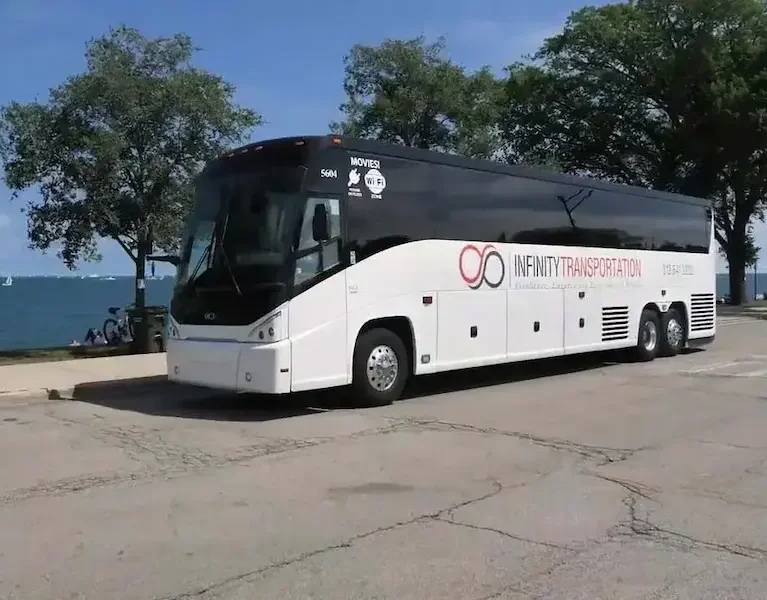Coordinating group travel in Illinois often hinges on predictability, comfort, and cost control, especially when schedules and headcounts shift. Modern providers make it easier to get from point A to point B without juggling carpools or deciphering multiple train lines. With coaches designed for long-haul ease and drivers trained for city and suburban navigation, travelers experience fewer delays and more time together. Whether you’re organizing a student field trip, a multiday sports tournament, or a regional conference, chartering delivers a practical balance of space and service. If dates are filling fast or you want to compare options, Check Now so you can secure a route that aligns with your group’s timing and priorities. For organizers who value simplicity and reliable timing, an Illinois Charter Bus can streamline every leg of the journey.
Flexible Scheduling for Sports, Schools, and Business Travel
Scheduling for teams, students, and professionals rarely follows a neat template, which is why charter services prioritize flexibility over rigid timetables. Coaches can be reserved for early-morning departures, late-night returns, or staggered pickups that mirror a tournament bracket or a multi-campus itinerary. Coordinators often appreciate how a single booking can include multiple onboard checklists, from equipment storage to ADA seating plans, without calling separate providers. When last-minute venue changes or weather delays occur, dispatch can adjust call times and loading windows to preserve the core schedule. The result is a dependable system that scales to your roster size and adapts to real-world timing.
Custom timetables that adapt to group rhythms
Athletic directors benefit from flexible standby options, allowing buses to remain nearby between games rather than cycling back to a depot. School planners gain peace of mind knowing the route can incorporate museum entry times, lunch breaks, and educator-led tours without rushing students. Corporate coordinators can build agendas around executive arrivals and session transitions, with shuttles looping between hotels and conference centers on a predictable cadence. An Illinois Charter Bus provider will typically confirm buffer windows and soft holds, which are invaluable when presentations run long or a coach needs to wait out a storm. By designing itineraries around the group’s specific pace, planners reduce idle time while still protecting the clock. That balance between calibrated timing and contingency-ready planning keeps groups focused on their goals, not logistics.
Key Onboard Amenities Improving Long-Distance Comfort
Longer trips place a premium on amenities that keep passengers fresh, connected, and ready to participate upon arrival. Reclining seats with extended legroom, adjustable climate control, and dark-tinted windows work together to create a calm cabin environment. Coaches commonly feature Wi‑Fi and power outlets, so laptops can stay charged and teams can review video or finalize slides on the move. Restrooms reduce the need for frequent stops, while overhead racks and undercarriage bays free the aisles of clutter. When passengers can rest or work without interruption, the miles pass comfortably—and the day’s agenda stays intact.
Comfort features that matter after mile 100
Small details compound across hours on the road, which is why cup holders, reading lights, and quiet cabins make such a difference. USB ports at most seats support phones and tablets, an essential for coaches leading students or managers tracking last-minute registration changes. Groups with accessibility needs can request lifts and priority seating, ensuring inclusive travel without separate arrangements. Media systems can display training clips, safety briefings, or welcome messages that set the tone for the event. With this focus on comfort and utility, an Illinois Charter Bus becomes an extension of the meeting room or locker room—a mobile space tailored to your crowd. These amenities don’t just elevate the ride; they help the day unfold smoothly once the doors open.
Pre-Planned Routes That Support Timely Trip Execution
Efficiency starts well before departure when routes are engineered to absorb traffic patterns, construction zones, and special-event closures. Trip planners compare alternative highways and arterial roads, keeping an eye on peak travel windows and rush-hour pinch points. Staging areas are chosen for ease of loading and minimal detours, which is especially important for large groups or those with mobility equipment. By mapping refueling options, rest stops, and meal locations in advance, the schedule avoids last-minute scrambles. Precision planning turns a complex itinerary into a predictable timeline.
Tools and tactics behind punctuality
Professional planners leverage traffic data, DOT updates, and venue-specific advisories to keep buses on target. They’ll factor in school or stadium policies for bus lanes and coach parking, streamlining arrivals and departures. Clear pickup instructions—plus a communication plan for texts or calls—help groups stay coordinated at busy terminals. For multi-day journeys, contingencies are documented in case storms reroute traffic or a highway closes overnight. When you book with an Illinois Charter Bus operator that shares a detailed run-of-show, everyone knows where to be and when. If you’re still comparing options or confirming dates, it’s smart to Check Now for availability around holidays or peak event seasons to protect your preferred time slots.
Driver Expertise That Enhances Passenger Safety
Safety rests on a foundation of skilled drivers who understand both the vehicle and the environment they navigate. Charter professionals log extensive training hours, learning how to handle varying road conditions, visibility challenges, and urban gridlock without compromising comfort. They follow strict rest cycles to prevent fatigue, and they perform thorough pre-trip inspections to ensure brakes, lights, and safety systems are fully functional. On the road, defensive driving techniques—maintaining safe following distances and anticipating sudden merges—reduce risk. Calm, confident handling becomes the difference between a stressful ride and a smooth one.
Training that translates to calmer rides
Experienced drivers know how to read local traffic patterns near stadiums, museums, and convention districts, choosing the best lane at the right moment. They communicate clearly with group leaders, confirming pickup points and updating ETAs when circumstances shift. In inclement weather, they opt for safer routes and slower speeds, prioritizing passengers over strict time pressure. Their knowledge also extends to secure parking and safe loading zones, which keeps boarding orderly and fast. If your trip requires specific expertise—such as navigating tight campus roads or complex airport loops—ask your provider to assign a driver with that background and Check Now to lock in the fit. With the right operator, safety and schedule stay in sync, and the entire experience feels more composed.
Modern Fleet Designs Supporting Greener Travel
Fleet innovation now focuses on efficiency and emissions without sacrificing comfort or carrying capacity. Many operators deploy newer diesel platforms engineered for cleaner combustion, alongside hybrids or zero-emission models on suitable routes. Aerodynamic bodywork, low-rolling-resistance tires, and smart energy management systems help reduce fuel use trip after trip. Idle-reduction tech cuts waste during staging, and telematics tools guide eco‑driving practices that save fuel while preserving timetables. Sustainability is no longer a tradeoff; it’s embedded in how fleets are specced and maintained.
Efficiency without sacrificing comfort
Greener buses still emphasize quiet cabins, reliable climate control, and steady power for outlets and onboard media. Operators schedule charging or refueling windows around your itinerary, so environmental goals complement on-time performance. Maintenance teams monitor engine health and filter systems, protecting air quality and ensuring consistent ride quality over long distances. For routes that can host electric coaches, planners evaluate terrain, charging availability, and dwell times to ensure practical deployment. If your organization prioritizes sustainability reporting, ask your provider for emissions estimates or equipment details from their Illinois Charter Bus fleet to document your impact. Choosing modern, efficient vehicles supports cleaner travel and strengthens the experience for every passenger.
Meeting 2025 Demand for Stress-Free Group Mobility
Expectations for group travel in 2025 stretch beyond mileage and seating capacity; they center on transparency, speed, and minimal friction. Coordinators want quotes that are easy to understand, booking steps that take minutes, and digital itineraries everyone can follow. Real-time updates reduce guesswork at crowded venues, while e-sign options and consolidated invoices remove paperwork headaches. Groups also favor operators that align with accessibility standards and clearly present their safety protocols. Stress-free mobility is no longer a perk—it’s the baseline.
What organizers expect—and deserve—this year
Savvy providers now offer portals where you can track vehicle locations, update headcounts, and message drivers without a chain of emails. They’ll share guidance on best pickup points, staging windows, and security checkpoints at high-traffic locations. For complex events, coordinators can request layered routes—hotel loops in the morning, venue shuttles midday, and airport runs at night—without rebooking multiple vendors. Post-trip reporting helps schools, teams, and companies evaluate timing, costs, and sustainability metrics for future planning. When you’re ready to coordinate your next itinerary with an Illinois Charter Bus partner that meets these expectations, Check Now to reserve a schedule that aligns with your deadlines and comfort requirements. Book early, keep your group informed, and let the right transport plan absorb the stress so your event can shine.










